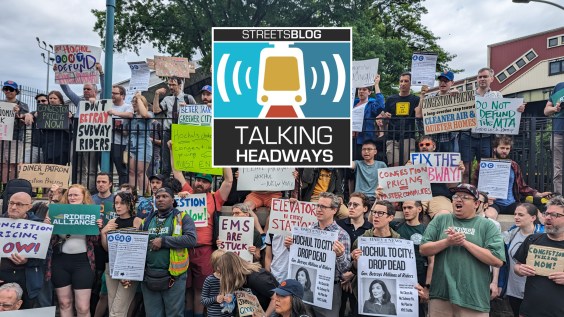Health care and transportation funding are very different items on Congress' to-do list, but the Washington Post's assessment
of the former issue fits the latter as well: Lawmakers return today
from a month-long recess to find a political landscape that has barely
shifted from the impasse of late July.
 Sen. George Voinovich (R-OH) (Photo: UPI)
Sen. George Voinovich (R-OH) (Photo: UPI)Jim
Oberstar (D-MN), chairman of the House transportation committee,
continues to press for action on a six-year infrastructure measure with
a $450 billion price tag that has no matching source of revenue.
Meanwhile, the Obama administration is pushing for an 18-month extension of current law that would delay broader reform until 2011.
Oberstar counts many allies on his committee -- and even House leaders are sympathetic
to his cause -- but a July letter urging Democrats to find a way to pay
for his six-year bill "as soon as possible" was not signed by 10
members of the pivotal Ways and Means panel, which controls the bill's
revenue source.
With a September 30 deadline for action on
federal transport policy, the biggest question may be whether the Obama
administration is willing to compromise with Oberstar and like-minded
House members on a shorter-term stopgap.
Sen. George
Voinovich (R-OH), one of a small group in the upper chamber that has
not sided with the White House in favor of an 18-month delay, has not
given up on his proposal for a 12-month extension of current law. In a
newsletter for his constituents published over the Labor Day weekend,
Voinovich wrote:
Across the country,Americans are still hurting. In our home state of Ohio, where unemploymentcurrently stands at 11.2 percent, people are asking, Where are the jobs?
Folks should know that some of their elected leaders are activelyjoining the Obama administration in its quest to blow yet anothergolden opportunity when it comes to creating jobs and stimulating theeconomy: they are refusing to support a robust new highway bill. ...
[After aligning with Oberstar] I offered an amendment at an Environment and PublicWorks (EPW) Committee business meeting to shorten the length of theproposed extension to 12 months and keep the pressure on Congress toinvest in our nation's roads and bridges, meet America's surface transportationneeds, and create thousands of jobs. Those few months could make theworld of difference when it comes to job creation, yet the amendmentfailed by a vote of 8 to 11.
My proposal for a12-month extension is a reasonable compromise; the House is opposed toany type of extension. They understand the urgency of the situationwe face.
Oberstar and the White House held fast to their positions in July, which ended with lawmakers approving a $7 billion rescue for the nation's cash-strapped highway trust fund that did not include extra transit money secured by several senators.
Given
that the capital's transportation stalemate remains largely the same in
September, the next year or so of federal policymaking on the issue
could depend on whether Oberstar and Voinovich assemble a workable
coalition in favor of a shorter delay -- or whether the administration
wins over enough House Democrats to its side.





